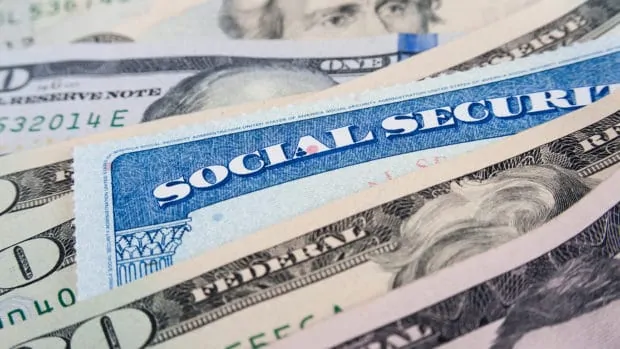Credit card debt has surpassed $1 trillion for the first time, says the The Federal Reserve Bank of New York.
New York Fed has released its “Quarterly Report on Household Debt and Credit” for two decades. The latest survey shows outstanding credit card balances are “the most prevalent form of household debt” – eclipsing auto loans, mortgages, and student loans.
Americans have racked up more than $45 billion on their credit cards in the past three months. And the delinquency rate – payments late by 90 days or more – is up to pre-pandemic levels. That may not sound alarming right away. But everyday expenses cost 1.2 times more than they did back then.
Delinquency rates are rising at a pace that “worries New York Fed researchers.” Before going too far into how we got in this mess, let’s break down what it all means.
What is credit card delinquency?
Credit card delinquency happens when you don’t make the minimum required payment on your credit card by the due date. Delinquent credit card debt is just a fancy name for past-due debt or overdue debt. It basically means that you’re behind and you need to catch up.
How credit card delinquency works
The impact of past-due credit card debt gets worse the longer the balance remains delinquent. A balance that’s only a few days overdue will only have a minimal impact on your finances in the form of late fees. But a balance left unpaid for more than 30 days will start to affect your credit.
Here’s how it works…
If you don’t pay the required minimum payment by the billing due date, your credit card is considered past-due. The credit card company will immediately apply late fees.
- The maximum late fee, if you’ve never missed a payment before, is $25.
- If you’ve missed a payment within the past six months, the late fee can be up to $35.
Once your bill is more than 30 days late, it’s considered a missed payment. Now you are 30 days delinquent.
- By law, the creditor can now report the credit card delinquency to the credit bureaus. However, most credit card companies will not report the delinquency until you have missed the payment by 60 days.
Things get worse once your balance is more than 60 days delinquent. If you haven’t made a payment in two months, two things will happen:
- The credit card company will report the delinquent account to the credit bureaus, the missed payments will show up in the credit history section of the account on your credit report.
- The creditor will also start to apply penalty APR. These rates are much higher than your standard interest rate. Penalty interest rates average 29.99%.
Once the credit card company starts reporting delinquent payments to the credit bureaus, you must catch up and bring your account current to fix your credit history.
If you continue to miss your payments, you have nine months where the account will remain delinquent. After nine months, the creditor will charge off your account. The account will be frozen and sent to either an in-house collections department, or it will be sold to a third-party debt collector.
Digging out of the credit hole caused by delinquent credit card bills
Although creditors offer some leniency when you’re late initially, once they start reporting credit card delinquency to the credit bureaus, you end up in a hole. And digging out of that hole can be tough, especially when your finances are already distressed.
To stop past-due credit card debt from appearing as negative information on your credit history, you must pay the full delinquent amount to bring your account current. In other words, once you’re behind your credit history will stay behind until you catch up. Even if you make a payment, it won’t show that you did in your credit history. It will still show as delinquent.
This can have a huge negative impact on your credit score. Every month where the payment is listed as delinquent will ding your score. So, month after month, your credit score will take damage until you catch up.
How to pay off delinquent credit card debt
It’s never too late to notify your creditor you’ve suffered a financial hardship. Ask if they can lower your interest rate, remove the fees, or set up a payment plan.
If the financial hardship you faced was only temporary, then you need to make catchup payments. This involves paying as much of the delinquent balance on the line of credit as quickly as possible.
For example, if your account became past due because you lost your job, once you get a new job you need to dedicate as much money as you can to bring your account current.
If the financial hardship you’re facing is more long-term or caused by budget issues, then you may need to take more aggressive measures to catch up with your credit card bills. The first thing you should do is call a nonprofit consumer credit counseling agency. This is a free service that can help you identify the best way to get out of debt for your unique financial situation. You will have three primary opinions.
Below is an explanation of each. But you can find out in less time than it takes to read them. Use Instant Debt Advisor℠. Answer a brief questionnaire and in three minutes it will tell you the best solution to your debts. It’s free to use. There’s no commitment to sign up today. Oh, and it has no impact on your credit.
Debt management program
If you fall behind on payments, you typically need to pay all of the money you owe before your account becomes current on your credit report. A debt management program fast tracks that process. Most creditors will agree to bring the account status current after only three payments on the program. This means a debt management program can get you out of debt faster and ensure less damage to your credit score.
If you only have a few delinquent credit card accounts, but the rest are current, the credit counselor will usually recommend this option. A debt management program is essentially a professionally assisted debt consolidation plan that repays your debt faster than you can with minimum payments.
Debt settlement program
If you have a lot of accounts that are behind and even some that are already charged off, then you may be better off with a debt settlement program. This focuses on getting you out of debt for a percentage of what you owe.
Past due accounts continue damaging your score, so the faster you bring them up to speed, the better. Settling collections could free up cash to bring your past-due accounts current. Or you may decide to settle everything to get out of debt quickly, so you can focus fully on rebuilding once you’re out of debt.
Pre-bankruptcy counseling
The credit counselor will also discuss bankruptcy if you’re facing severe financial hardship. They may recommend pre-bankruptcy counseling.
If you need help managing your delinquent credit card debt, you can get it today. Reach out for a free consultation and personalized plan for managing your debt.







